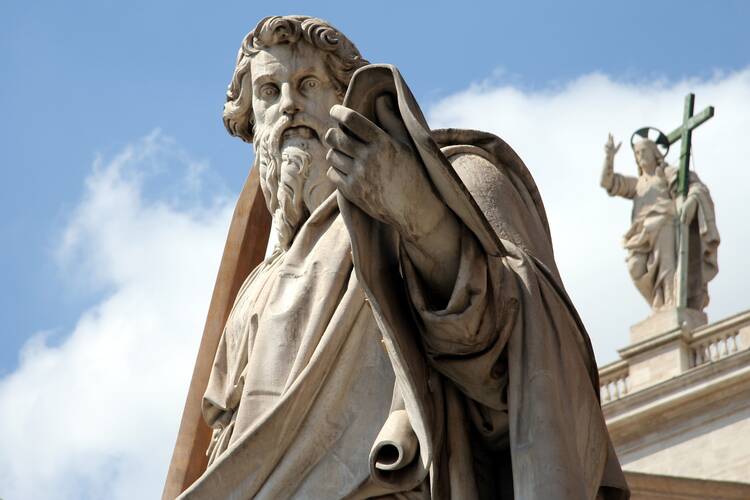A Reflection for Friday of the Third Week of Easter
Find today’s readings here.
Saul, still breathing murderous threats against the disciples of the Lord,
went to the high priest and asked him
for letters to the synagogues in Damascus, that,
if he should find any men or women who belonged to the Way,
he might bring them back to Jerusalem in chains.
On his journey, as he was nearing Damascus,
a light from the sky suddenly flashed around him.
He fell to the ground and heard a voice saying to him,
"Saul, Saul, why are you persecuting me?"
He said, "Who are you, sir?"
The reply came, "I am Jesus, whom you are persecuting …” (Acts 9: 1-20)
What was poison to the early Christians, God turned into medicine. What was murderous, God turned into what was redemptive. In today’s passage from the Acts of the Apostles, God takes hold of the potent, dark energies that drove Saul’s attempt to destroy nascent Christianity and begins re-directing them to forge a thousand new paths for Christianity. Saul who tried to snuff out “the Way” in Israel will become Paul who promoted the Way in Antioch, Ephesus, Macedonia, Corinth—in most of the major cities in the known world. The light of Christ would one day reflect off the very blade that was cutting down Christ.
This is what God does. This is how he operates. In the Annunciation in Nazareth, God tells an unknown, unmarried virgin that she will give birth to the savior of mankind. In the blinding flash outside Damascus, God transforms a murderer of Christians into their greatest champion. God does improbable things to achieve his ends, all for the salvation of our souls.
So we keep our eyes open because he is still doing the improbable. He is still using the ones we loathe, avoid, think little of, look down on, envy, dismiss, seek the ruin of; God uses these people daily for the ongoing redemption of the world.








